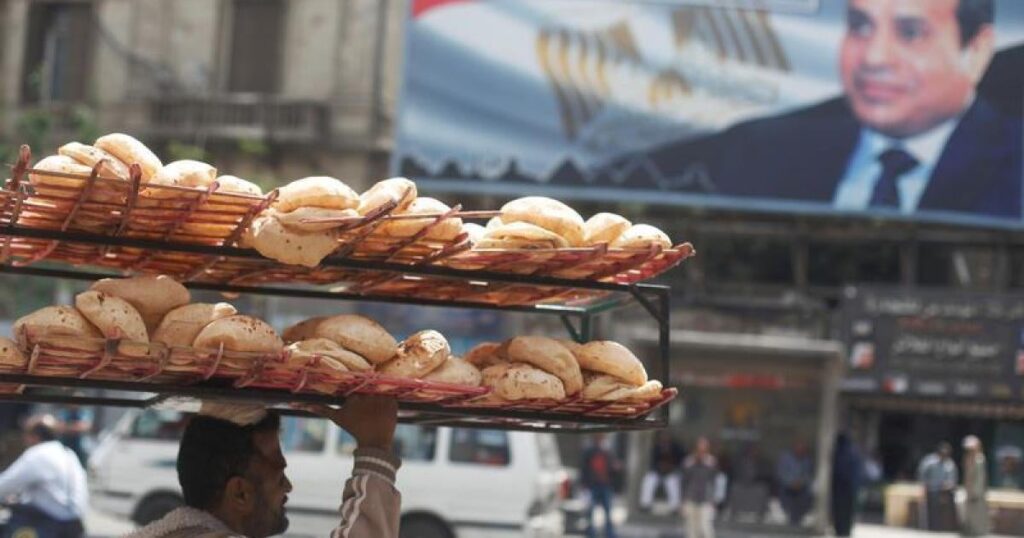Egypt’s Economic Crisis: The Sinking Ship of Al-Sisi’s Regime
In recent months, the average Egyptian conversation has been dominated by a single topic: the relentless surge in prices of basic food and commodities. This isn’t just a reflection of the high cost of living but a symptom of a much deeper malaise within Egypt’s economy. The foreign currency crisis has pushed the black market exchange rate to double the official rate, highlighting an ongoing and severe economic downturn. With inflation hitting a staggering 40 percent, millions of Egyptians find their economic and social rights in jeopardy. This grim economic landscape reveals too much about Egypt’s prolonged and escalating financial crisis.
Background: A Nation in Economic Turmoil
Egypt’s current economic plight stems from multiple factors, not least of which is a severe foreign currency shortage. In response, the black market exchange rate has skyrocketed, with one US dollar fetching over 31 Egyptian pounds officially, and even more unofficially. The resulting inflation has eroded the purchasing power of Egyptians, pushing many to the brink of poverty.
The crisis is exacerbated by President Abdel Fattah Al-Sisi’s approach to governance. Rather than addressing the root causes, Al-Sisi’s government has focused on short-term fixes and desperate tactics to maintain control, as evidenced by pushing forward presidential elections to December 2023, originally scheduled for March 2024. Critics argue that this move was intended to quell burgeoning public discontent rather than provide a democratic choice.
The Failures of Al-Sisi’s Administration
President Al-Sisi’s nervousness is palpable. On September 30, he ominously suggested that it would be acceptable for Egyptians to face famine to achieve his vision of development. This statement draws uncomfortable parallels to the Great Chinese Famine, implying that disastrous economic sacrifices are expected of Egyptians.
Al-Sisi’s tenure has been marked by an aggressive crackdown on civil liberties and an abandonment of the promised economic prosperity. Since taking power following a military coup in 2013, Al-Sisi has positioned economic and social rights as mutually exclusive to political freedoms. This has resulted in a tightening grip on all forms of dissent and expression under the guise of maintaining “national security requirements.”
Egypt’s poverty rate has surged under Al-Sisi’s rule, with promises of development proving to be illusory. The impact of his governance style is brutal: the state has come down hard on dissenters, prosecuting civilians in military courts on vague charges. The economy remains stagnant despite billions of dollars in aid from Saudi Arabia, the UAE, and institutions like the International Monetary Fund (IMF) and World Bank.
Vanity Projects Amid Economic Despair
Despite the economic crisis, Al-Sisi has pushed forward with lavish, ill-conceived projects meant to boost public morale. These endeavors often lack feasibility studies and strain the national budget even further. The country’s military, benefitting from an unbalanced marketplace devoid of civilian oversight, has expanded its control over consumer markets, leading to widespread corruption and the squandering of public resources.
The introduction and subsequent removal of food and fuel subsidies—backed by the IMF—have further strained the public. Social security measures remain inadequate, covering merely a fraction of the population living in or near poverty. Inflation has rendered the already limited cash assistance almost worthless.
Political Stagnation and Military Dominance
At the heart of Egypt’s crisis is a political deadlock. Al-Sisi has eschewed forming a political party, choosing instead to rely on military and security forces to maintain power. This approach was meant to avoid what he perceived as Mubarak’s mistake—ruling through a political party that eventually birthed business oligarchs and corruption. By dismantling independent institutions and centralizing power in the military, Al-Sisi has created a fragile, unsustainable system.
The military’s expanded role in political and economic life has not endeared it to the populace, which increasingly views it as complicit in the nation’s economic woes. Public dissatisfaction with Al-Sisi is soaring to levels reminiscent of the discontent that culminated in the end of Mubarak’s 30-year rule.
Continued External Support
Western governments and institutions have often turned a blind eye to Egypt’s human rights abuses, instead prioritizing regional stability and security concerns. This has resulted in continued financial support for Al-Sisi’s administration despite its failures. Recently, there have been talks of new deals with entities like the European Union, the IMF, and the World Bank. Al-Sisi remains reliant on this external support to sustain his beleaguered regime.
While these deals provide temporary relief, they fail to offer long-term solutions. Egypt’s substantial $35 billion investment deal with the United Arab Emirates, announced in February, is another example of this short-sighted support. Such political backing has benefited Egypt’s ruling elite far more than its impoverished citizens.
Conclusion: A Regime on the Brink
Many analysts believe that Egypt is edging closer to a significant social or political upheaval. The seeds of Al-Sisi’s failure are evident: by undermining the rule of law, stifling independent institutions, and attacking the free press, Al-Sisi has crippled the essential foundations for a robust economy. His administration’s inability to enact substantive reforms and its reliance on coercion suggest that meaningful change is unlikely.
The greater the delay in addressing these systemic issues, the higher the eventual cost to Egypt’s long-term stability. The ongoing crisis serves as a stark reminder of the urgent need for accountable governance, equitable economic policies, and genuine political reform in Egypt.
For more information, visit Egyptian Government Official Website.
